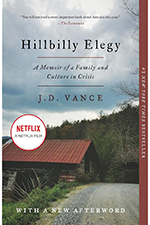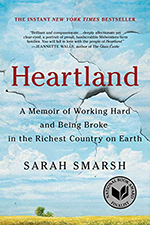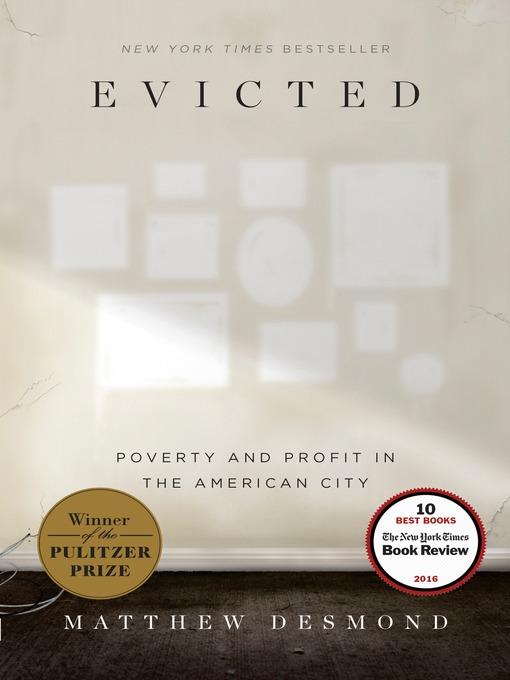 Maid: Hard Work, Low Pay, and a Mother's Will to Survive
Maid: Hard Work, Low Pay, and a Mother's Will to Survive
by Stephanie Land
GENRE: Nonfiction, Memoir
Author Stephanie Land chronicles her years as a single mother barely making a living on government assistance and employment as a maid. Land’s resilience and dreams are nearly destroyed by the grinding poverty and limited options.
 Author Biography
Author Biography
Stephanie Land is the instant bestselling author of MAID: Hard Work, Low Pay, and a Mother’s Will to Survive. Her work has been featured in The New York Times, The Washington Post, The Guardian, The Atlantic, and many other outlets. Her writing focuses on social and economic justice. - Goodreads
Kirkus Reviews
/* Starred Review */ First-time author Land chronicles her years among the working poor as a single mother with only a high school diploma trying to earn a living as a minimum-wage housecleaner. The author did not grow up in poverty, but her struggles slowly evolved after her parents divorced, remarried, and essentially abandoned her; after she gave birth to a daughter fathered by a man who never stopped being abusive; and after her employment prospects narrowed to dirty jobs with absurdly low hourly pay. The relentlessly depressing, quotidian narrative maintains its power due to Land's insights into working as an invisible maid inside wealthy homes; her self-awareness as a loving but inadequate mother to her infant; and her struggles to survive domestic violence. For readers who believe individuals living below the poverty line are lazy and/or intellectually challenged, this memoir is a stark, necessary corrective. Purposefully or otherwise, the narrative also offers a powerful argument for increasing government benefits for the working poor during an era when most benefits are being slashed. Though the benefits received by Land and her daughter after mountains of paperwork never led to financial stability, they did ameliorate near starvation. The author is especially detailed and insightful on the matter of government-issued food stamps. Some of the most memorable scenes recount the shaming Land received when using the food stamps to purchase groceries. Throughout, Land has been sustained by her fierce love for her daughter and her dreams of becoming a professional writer and escaping northwest Washington state by settling in the seemingly desirable city of Missoula, Montana. She had never visited Missoula, but she imagined it as paradise. Near the end of the book, Land finally has enough money and time to visit Missoula, and soon after the visit, the depression lifts. An important memoir that should be required reading for anyone who has never struggled with poverty. (Kirkus Reviews, November 1, 2018).
Library Journal
Writer Land's vivid and visceral yet nearly unrelenting memoir covers three dark years in the life of a single mother raising her young daughter, Mia, on the unlivable wages that come with the physically and emotionally grueling work of contract housekeeping. With family who are unable to help and a contentious relationship with Mia's abusive father, Land determines to make a life for herself and Mia on her own. Through work as a maid and occasional government assistance, she scrapes by, but at the cost of her health and dignity. Most of the chapters are named for the homes Land cleans, identified by a dominant attribute ("the porn house," "the sad house"), and signifying the unusual intimacy of a nonrelationship between householder and the person who cleans up after their domestic behavior. Unfortunately, Land's personal narrative does not extend or speak to the larger realities of poverty and single motherhood, particularly for women of color. And while Barbara Ehrenreich (Nickel and Dimed) provides an interesting foreword, it doesn't help enough to widen the book's lens. VERDICT Land has perhaps succeeded in having her story told by virtue of her eventual triumph in escaping the grind of poverty. Her journey offers an illuminating read that should inspire outrage, hope, and change. --Janet Ingraham Dwyer (Reviewed 12/01/2018) (Library Journal, vol 143, issue 20, p78).
Publisher's Weekly
/* Starred Review */ In her heartfelt and powerful debut memoir, Land describes the struggles she faced as a young single mother living in poverty. “My daughter learned to walk in a homeless shelter,” she writes, before chronicling her difficult circumstances. Land got pregnant at 28, then left an abusive relationship and went on to raise her daughter, Mia, while working as a part-time house cleaner in Skagit Valley, Wash. Later, using public assistance, Land moved to a moldy studio apartment and got her daughter into daycare. While housecleaning, Land imagines the lives of the clients, whom she knows intimately through their habits and possessions (their apparent unhappiness despite financial comfort fosters compassion as well as gratitude for her own modest space), and experiences the humiliating stigma of being poor in America (“You’re welcome!” a stranger snarls at the checkout as she pays with food stamps). Even while working, Land continued to follow her dream of becoming a writer. She began a journal and took online classes, and eventually attended the University of Montana in Missoula. Land’s love for her daughter (“We were each other’s moon and sun”) shines brightly through the pages of this beautiful, uplifting story of resilience and survival. Agent: Jeff Kleinman, Folio Literary. (Jan.) --Staff (Reviewed 10/22/2018) (Publishers Weekly, vol 265, issue 43, p).
 Hillbilly Elegy: A Memoir of a Family and Culture in Crisis
Hillbilly Elegy: A Memoir of a Family and Culture in Crisis
by J. D. Vance
Hillbilly Elegy is a passionate and personal analysis of a culture in crisis—that of white working-class Americans. The decline of this group, a demographic of our country that has been slowly disintegrating over forty years, has been reported on with growing frequency and alarm, but has never before been written about as searingly from the inside. J. D. Vance tells the true story of what a social, regional, and class decline feels like when you were born with it hung around your neck.
The Vance family story begins hopefully in postwar America. J. D.’s grandparents were “dirt poor and in love,” and moved north from Kentucky’s Appalachia region to Ohio in the hopes of escaping the dreadful poverty around them. They raised a middle-class family, and eventually their grandchild (the author) would graduate from Yale Law School, a conventional marker of their success in achieving generational upward mobility.
But as the family saga of Hillbilly Elegy plays out, we learn that this is only the short, superficial version. Vance’s grandparents, aunt, uncle, sister, and, most of all, his mother, struggled profoundly with the demands of their new middle-class life, and were never able to fully escape the legacy of abuse, alcoholism, poverty, and trauma so characteristic of their part of America. Vance piercingly shows how he himself still carries around the demons of their chaotic family history.
A deeply moving memoir with its share of humor and vividly colorful figures, Hillbilly Elegy is the story of how upward mobility really feels. And it is an urgent and troubling meditation on the loss of the American dream for a large segment of this country.
 Heartland: A Memoir of Working Hard and Being Broke in the Richest Country on Earth
Heartland: A Memoir of Working Hard and Being Broke in the Richest Country on Earth
by Sarah Smarsh
Sarah Smarsh was born a fifth generation Kansas wheat farmer on her paternal side, and the product of generations of teen mothers on her maternal side. Through her experiences growing up on a farm thirty miles west of Wichita, we are given a unique and essential look into the lives of poor and working class Americans living in the heartland.
During Sarah’s turbulent childhood in Kansas in the 1980s and 1990s, she enjoyed the freedom of a country childhood, but observed the painful challenges of the poverty around her; untreated medical conditions for lack of insurance or consistent care, unsafe job conditions, abusive relationships, and limited resources and information that would provide for the upward mobility that is the American Dream. By telling the story of her life and the lives of the people she loves with clarity and precision but without judgement, Smarsh challenges us to look more closely at the class divide in our country.
Beautifully written, in a distinctive voice, Heartland combines personal narrative with powerful analysis and cultural commentary, challenging the myths about people thought to be less because they earn less.
 Evicted
Evicted
by Matthew Desmond
A Harvard sociologist examines the under-represented challenge of eviction as a formidable cause of poverty in America, revealing how millions of people are wrongly forced from their homes and reduced to cycles of extreme disadvantage that are reinforced by dysfunctional legal systems.